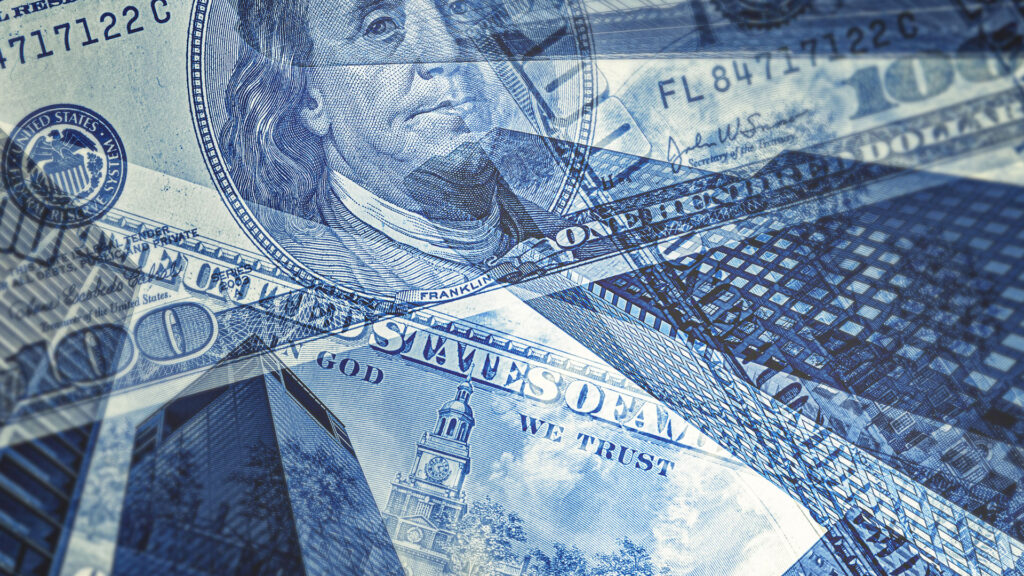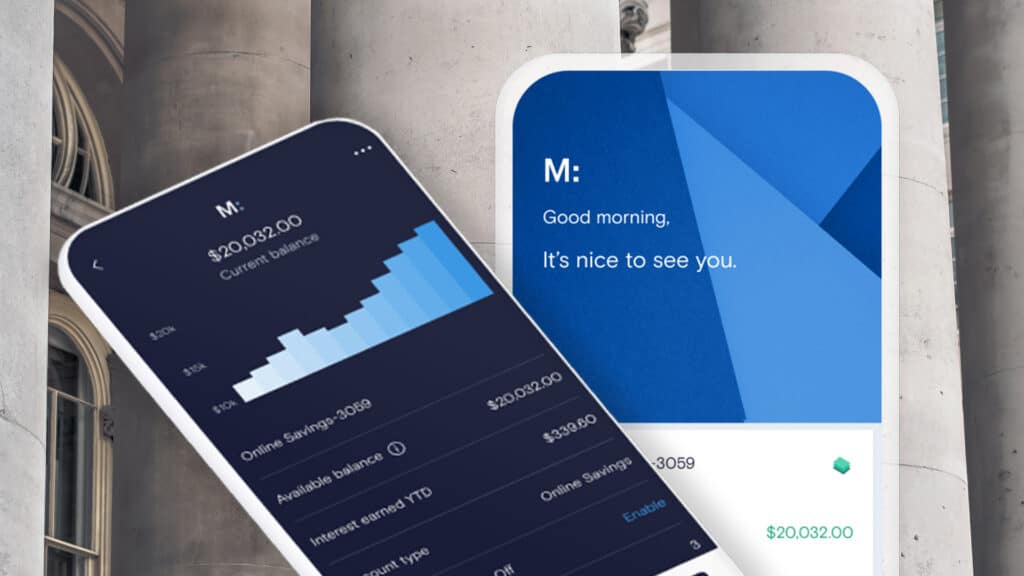Most products on this page are from partners who may compensate us. This may influence which products we write about and where and how they appear on the page. However, opinions expressed here are the author's alone, not those of any bank, credit card issuer, airline or hotel chain.
Not all available financial products and offers from all financial institutions have been reviewed by this website.
When you look for a new credit card, it's important to consider each option as a whole instead of just looking at the sign-up bonus and rewards program. As part of your research, it's also important to consider a card's annual fee. But a credit card annual fee isn't necessarily a deal-breaker, even if you're on a budget. The key is to determine if the card offers enough value to make up for the annual fee and still provide enough value to beat out a no-fee credit card.
Here are some situations where it might make sense to consider annual fee cards and how to determine if one is right for you.

How I Make Multiple Credit Cards With Big Annual Fees Work for Me
Your Credit Needs Some Work
If your credit history is considered poor, fair or limited or you have no credit history at all, a lot of the credit card options available to you charge an annual fee.
That's not to say you can't find a credit card for bad credit or fair credit without an annual fee. But depending on your situation, it may be the best option.
Poor or No Credit
If you have poor credit or you haven't had the chance to build your credit history, there are a lot of secured credit cards that don't charge an annual fee. The Discover it® Secured Credit Card and the Secured Mastercard® from Capital One are just two examples.
But most credit cards require that you have a bank account, so you can make your monthly payments. If you don't have one, the OpenSky® Secured Visa® Credit Card may be a good fit. The card may also be a good option if your credit has so many negative marks that you can't even qualify for another secured card.
This is because the card doesn't require a credit check when you apply, and it also doesn't require that you have a bank account. The card's annual fee is $35, but that can be worth it to start rebuilding your credit.
Fair Credit
If your credit is considered fair, one of the best cards available is an annual fee credit card. The Capital One QuicksilverOne Cash Rewards Credit Card offers unlimited 1.5% cash back on every purchase you make—a rewards rate that rivals some of the best cash-back credit cards on the market.
However, the flat-rate card charges a $39 annual fee. In order to make up for it in cash back, you'd have to spend at least $2,600 every year. Beyond that, all the cash back you earn is effectively a profit, as long as you don't pay interest.
The Annual Fee Is Waived the First Year
While it's not as common as it used to be, some travel rewards cards waive the annual fee the first year. This allows you to essentially test-drive the rewards card for a whole year to determine if it's a good fit for you. It's also a good incentive to apply for a card when you compare it to a similar card that doesn't waive the fee during the first year.
Here are just a few annual fee credit cards that waive the fee for the first year:
- United Explorer Card
- U.S. Bank Altitude Connect Visa Signature Card
- Spark Miles from Capital One
- Citi® / AAdvantage® Platinum Select® World Elite Mastercard
You'll still want to look at each card's long-term value before you sign up. It can have a negative impact on your credit score if you apply for a card and only keep it for a year, then replace it with another one. That said, getting the chance to test out a card before you have to pay an annual fee can help you determine if it's the right move for you.
The Rewards Are Better Than a No Annual Fee Card
In many cases, it makes sense to pay an annual fee because the card's rewards program is so strong that it provides more value even than credit cards with no annual fee in its class.
For example, take the Citi Premier® Card, from our partner Citi. It offers 3 points per $1 spent at gas stations, on air travel, at restaurants and at supermarkets. Plus, for a limited time, you can earn a total of 10 ThankYou® Points per $1 spent on hotel, car rentals and attractions (excluding air travel) booked on the Citi Travel℠ portal through June 30, 2024. If these are categories you spend in often, you could easily offset the card's $95 annual fee.
If you're trying to choose between cards like this based on rewards, consider running the numbers for your specific spending habits to determine which card will give you the most value after annual fees are paid.
Earn Cash for Your SpendingBest Cash Back Credit Cards
Visit the Marketplace
The Welcome Bonus Far Outweighs the Fee
In many cases, rewards credit cards offer ongoing rewards on everyday purchases and a welcome bonus when you first open your account.
As a new cardholder, you'll typically earn a lump sum of cash back, points or miles after you meet a certain spending requirement. In many cases, the value of that bonus is enough to cover the annual fee for several years.
For example, the Chase Sapphire Preferred® offers a generous outsized bonus after new cardholders spend a certain amount in the first three months from account opening. That bonus is worth hundreds of dollars in free travel when you book through Chase. The travel rewards-earning card also charges a $95 annual fee, but that sign-up bonus is enough to cover the fee for many years.
That's an extreme example, but it's not uncommon to find a travel credit card that offers a welcome bonus worth $500 or more and charges an annual fee under $100.
As you're comparing annual fee cards with sign-up bonuses, consider how long each card's upfront incentive will cover the cost of the card's annual fee.
 Related Article
Related Article
Best Bank Account Bonus Promotions in April 2024
The Perks Outweigh the Cost
In some cases, you don't even need to worry about whether a card's sign-up bonus or ongoing rewards program is enough to make its annual fee worth it.
Hotel Credit Cards
For example, hotel credit card annual fees are generally easy to justify because many of them offer a free night certificate every year when you pay your annual fee (typically starting after the first year).
To give you an idea of how that works, let's consider the Marriott Bonvoy Boundless™ Credit Card. The card charges a $95 annual fee but also offers a free night worth up to 35,000 points as an anniversary benefit.
According to our points and miles value guide, Marriott Bonvoy points are worth 0.4 cents apiece, which means those 35,000 points are worth $140 on an average redemption—that's almost twice the value of the annual fee. And if you're savvy about finding the right redemptions, you could get even more value.
For example, one time, I booked a Marriott hotel near Times Square that cost $450 per night, but I paid nothing with my free night certificate.
These co-branded credit cards can be extremely valuable despite their annual fees, which is why I have eight hotel rewards cards.
Premium Travel Credit Cards
Some top-tier travel credit cards charge sky-high annual fees. But depending on your travel habits, you could get far more value than what you pay every year in perks alone.
The Chase Sapphire Reserve® is a great example. The card charges a $550 annual fee, but here's a list of statement credits and other benefits you can take advantage of:
- $300 annual travel credit: Cardholders can get reimbursed for up to $300 worth of travel-related purchases. You can use this credit to book travel, pay fees and even pay taxes on award reservations. Eligible purchases are automatically wiped off your balance with statement credits.
- Global Entry, NEXUS and TSA PreCheck credit: The card offers a Global Entry, NEXUS or TSA PreCheck credit of up to $100 to reimburse the cost every four years.
- Priority Pass: The Chase Sapphire Reserve provides a Priority Pass benefit, allowing cardholders to access airport lounges with a Priority Pass Select membership (activation required).
- No foreign transaction fee: International purchases won't incur extra fees.
- Rental car insurance: Cardholders can access car rental insurance, which allows you to decline the rental company’s collision insurance. As long as the car is paid for with the card, you can get up to $75,000 in theft and collision damage for car rentals worldwide.
- Hotel benefits: In addition to offering 10 points for every dollar spent on lodging booked through Chase Ultimate Rewards, the card also gives you access to The Luxury Hotel & Resort Collection, free daily breakfast for two, early check-in and late checkout.
- Complimentary membership perks: Cardholders get complimentary DashPass, a two-year Lyft Pink All Access membership and a one-year Instacart+ membership.
- Purchase protection: Get 120 days of coverage for new purchases against damage or theft, up to $10,000 per claim and $50,000 per year.
With these perks, you could majorly offset if not even wipe out the annual fee, depending how many you can take advantage of. That said, you do have to use the perks regularly to make the annual fee worthwhile. But if your spending and travel habits align with the perks, the annual fee may feel like a good deal.
Other Credit Card Fees to Watch Out for
A credit card's annual fee is an important consideration when you're trying to decide if you should apply. But it's not the only cost to keep in mind. Here are some others:
- Fees for balance transfers: Many no annual fee cards offer balance transfers with a 0% intro APR. This promotion for balance transfers can last up to 20 months or billing cycles, depending on the card. However, you'll typically have to pay an upfront balance transfer fee to process it. That fee can range from 3% to 5% of your balance transfers. Also, remember that the regular APR will be charged once the balance transfer promotion ends.
- Foreign transaction fees: Many credit cards charge foreign transaction fees, which can cost up to 3% of every purchase you make abroad. The good news is that most travel credit cards waive the fee, so you don't have to worry about them. Also, some credit card issuers like Capital One and Discover waive foreign transaction fees on all their cards.
- Cash advance fees: If you use your card at an ATM or the teller counter at a bank to get cash, you'll typically be charged a cash advance fee. This fee can be higher than a balance transfer fee. Also, the variable APR for cash advances is generally higher than the regular APR for purchases, and interest starts accruing immediately. In other words, it's best to avoid cash advances.
- Late fees: On-time payments are always ideal, but if you miss a payment or have one returned because you don't have enough cash in your checking account, you may be charged a late fee. Depending on the card, it can cost up to $40.
Frequently Asked Questions
-
Yes, many credit cards that require payment of an annual fee hold more value in rewards and benefits than you spend in the annual fee. However, the value vs. cost is dependent on the credit card, your spending habits, and ultimately what you deem to be valuable in terms of non-monetary benefits like airport lounge access.
-
Credit cards issuers that offer the most competitive rewards, benefits and incentives will charge an annual fee to offset the cost that comes with providing those perks.
-
On the anniversary of account opening is when credit card issuers typically charge you for your annual fee. However, every credit card and credit card issuer has their own requirements. Check with your issuer for your exact annual fee payment date.
-
Yes, credit cards that have no annual fee still have the ability to provide exceptional value and benefit to their users. For example, some fee-free rewards cards can still offer competitive cash back just as fee-free travel cards can still offer competitive ways to earn miles.
However, credit cards that charge an annual fee tend to offer above average rewards, benefits and perks which is why there is a fee implemented. it's a way to offset cost for the issuer.















